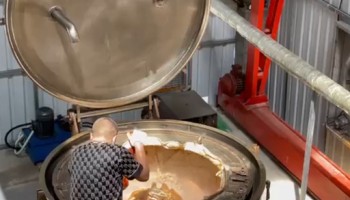Codenamed “Lionfish,” the operation included two major busts that provide a snapshot into how drug traffickers are “constantly seeking new routes and ways to smuggle narcotics across borders,” the police organization said.
Officers coordinated actions at borders during a specific two-week period in March and April, first on the African continent and then in the Middle East and in North Africa.
As a result, authorities confiscated 17 tons of cannabis resin—valued at 31 million euros (about $37 million)—from warehouses in Niger. This is reportedly the largest seizure in the country’s history.
Shipped from Lebanon to the Togolese port of Lomé, the drugs were heading for Libya, according to Interpol. The group has seen a “marked increase” in drug traffickers using Libya as a transshipment point, the report added.
“The striking results of these two operations demonstrate the sheer scale of the trade in illicit drugs and its international nature,” said Jürgen Stock, Secretary General of Interpol.
“Drug trafficking is a threat that we collectively face and the massive seizures achieved in Operation Lionfish show what is possible when law enforcement fights back together,” Stock added.
During the same time period, South Africa Police arrested ten people and seized 973 cocaine bricks, worth an estimated 32 million euros ($39 million), from a fishing boat off the country’s western coast.
“Drug trafficking most often is the causal factor to so much of the violent crimes plaguing our societies,” said General Khehla Sitole, the National Police Commissioner of South Africa.
“I don't believe that there is any country in this world that is immune to drugs and this is what makes our collaborative effort even more critical to overcoming this scourge,” he added.
The two operations also recovered 200 kilos of amphetamines, 56 kilos of heroin, 30 kilos of methamphetamines, 21 kilos of cocaine powder, as well as uncut diamonds, live pangolins, illicit cigarettes and vehicles.






